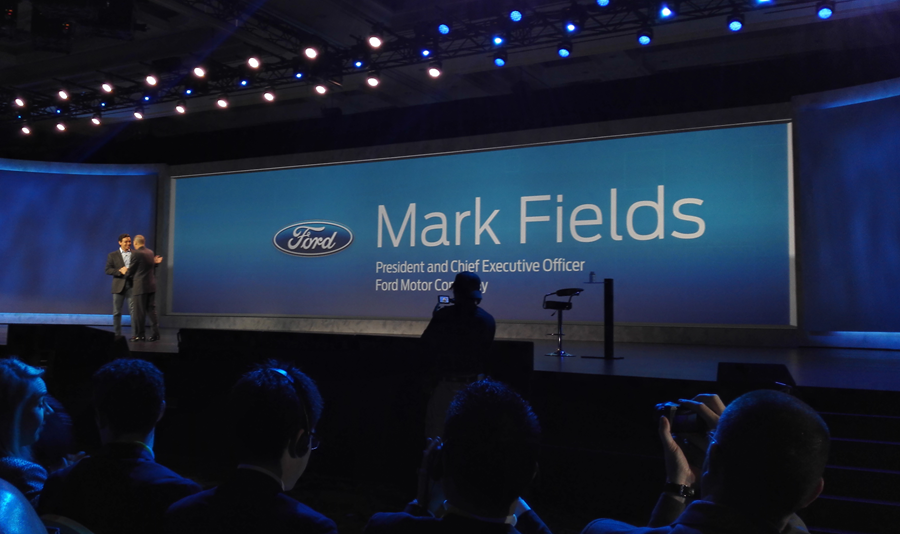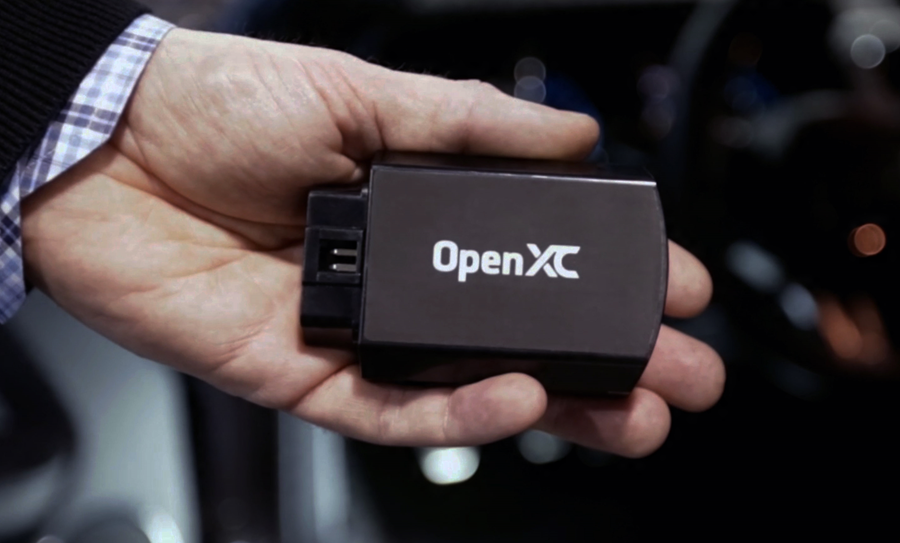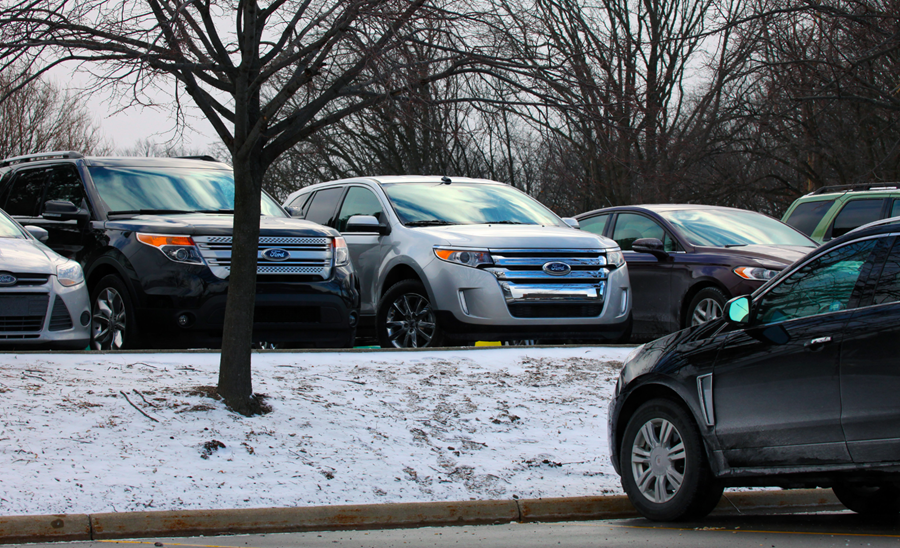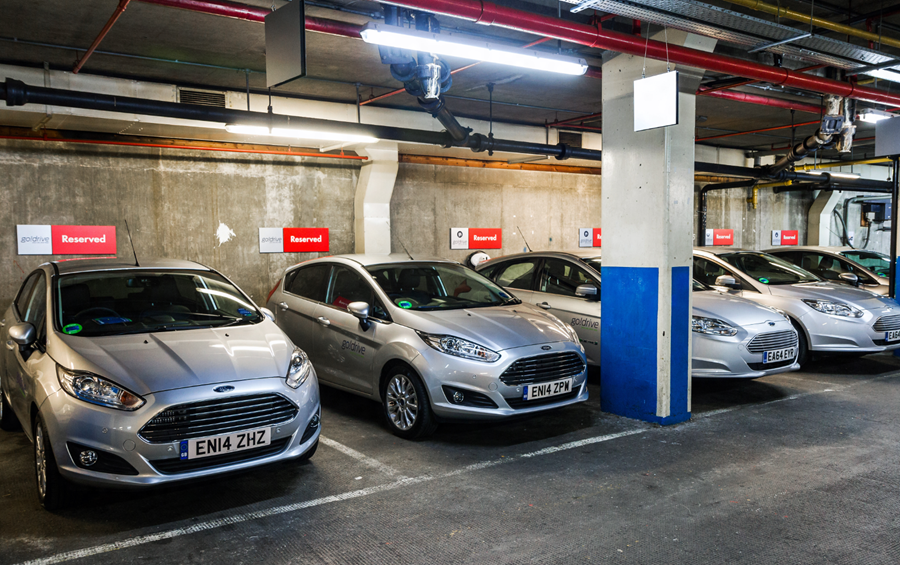This morning Mark Fields, CEO of Ford Motor Company, delivered his first keynote address at CES. He reflected on the company’s original vision to democratise transportation and the company has been successful in that objective. But what does that mean for Ford in 2015? Ford are now embarking on a fundamental change to the company, focusing on the largest global transportation issues. As part of their Smart Mobility strategy, they will attempt to fix city congestion, parking locations, fleet management, even ride sharing and vehicles as a service.
Ford are working on 25 experiments across the globe, each with their own timeline, objectives and outcomes. Overall they all have something in common, they have to benefit us, people. Each of these experiments are designed to collect data so Ford can learn more about how it can help, not just themselves as a company, sure that’s part of it, but it really does seem to be corporate culture now to work hard at solving transport issues across the world.
With thanks to an OpenXC module plugged into the ODB-II port of thousands of Ford employees, they’ve already begun collection data. This who vision only works if they get massive datasets, and with each car creating up to 25MB per hour of rich vehicle data, they need to leverage the cloud to make sense of it. Currently Ford is making use of different services to manage the data acquired, but have confirmed they are using Microsoft Azure platform for some experiments.
Microsoft touts the massive potential benefits of using Azure machine learning across massive data sets, so the Ford and Microsoft partnership is only going to grow over coming years. I think Ford will quickly realise benefits of having all data sets on a single platform to query, slice and dice and importantly store. Many reporting Ford was walking away from Microsoft, this couldn’t be further from the truth. They definitely moved away from Microsoft Auto in favour of Blackberry’s QNX platform, but as a product that accounts for 60% of the vehicle infotainment systems, it made sense SYNC3 used the platform. Let’s be honest, Microsoft’s strength is in software and services, not automotive.
Like the Folding @ Home that many of us contributed to, using spare processing cycles from computers and consoles, Ford needs your help to help the world improve. If hundreds of thousands, even millions of people opt into the OpenXC platform, Ford will fully understand traffic in a way no other company does. It’s a big if and they’ll need to do a lot of marketing around this to get mass adoption, but thanks to using an open standard, owners of any vehicle with the port can contribute.
Unfortunately there’s no commercially available units yet, but that’s not too far away. Right now if you’re a builder, you can create your own, everything you need to get started is http://openxcplatform.com/hardware.html
Ford haven’t set exact timelines on experiments, only to say this is a multi-year project and have invested heavily, hiring a team of almost 100 employees to look at these problems and collect the data. This team will also work with other companies to leverage existing datasets or different ways of collecting. Ford did a couple of things very right. Firstly they said up front, you own your data, no question. The second is that it’s opt-in, not opt-out, so you won’t find new Ford vehicles rolling of the production line with this tracking enabled.
In talking to the employees at Ford during CES, it is convincing just how much they seriously believe in protecting your data. It’s easy to say and the proof will come over the next few years, but after the very public attacks and leaks on Sony Pictures, companies like Ford are ultra aware of this challenge.
So far we’ve only talked about this data in relation to cars, but they’re also planning on doing it for busses, trucks and even bikes. As each one of these transportation options either contribute or help with the problems like city congestion, they all need to be understood. A pushbike for example doesn’t have electronics like a car, but it does have similar properties that could be tracked, even by a mobile phone. Acceleration, braking, GPS routing etc. Leveraging the mobile connection of your phone this data (with permission) could also be contributed to the global dataset.
We’ve talked about what Ford are planning but let’s get into what they could potentially solve using this data. Ford talked about Las Vegas and the transportation issues that happen throughout the year but especially during CES. A city of just a million people is tiny compared to the megacities (population of 10 Million and above). So if a small city is having issues, the largest ones are in chaos. Ford says the number of megacities is set to explode, moving from the current 28 to 41 in the not too distant future.
There’s 4 key trends Ford have identified which means we have change the way we transport people around the world:
- Urbanization
- Global Middle Class Growth
- Air Quality
- Changing Consumer Attitudes
Traffic delays in the first world means missed meetings and productivity, frustration and anger, even stress which contributes to health issues. The biggest impact of all, of a prolonged daily commute is that you miss out on life. You miss out on spending time with family, friends and loved ones. This is what Ford wants to change.
If they can pull of these bold aspirations, it’s possible to see consumers buying Ford vehicles because they get some of their life back. Imagine if you were faced with the decision of buying one brand of vehicle or another and one offered the ability to save 7 days in travel time over the course of a year, or 2 hours per week. Of course that’d heavily impact the decision making process, maybe more than price for some consumers.
Every navigation system on the planet basically does the same thing today. It looks at the desired path of shortest distance or fastest journey and directs the user. If there’s congestion, it can route around an incident.. that’s great, but what if that incident is city-wide congestion. What if Ford’s understanding of routing become personalised to speed up traffic movement at a city-wide level, not an individual. This could mean you are given a different path home to you’re coworker who lives next door that leaves work exactly the same time. This is because sending the same route information to masses of vehicles sends them all along the same journey.
If Ford can arrive at a situation where we use our existing road infrastructure in more intelligent ways thanks to data, then they could allow local council and government to save hundreds of millions of dollars building new roads. It’s easy to see where this takes Ford, from a company that makes vehicles with 4 wheels to a company that uses big data to benefit society as a whole while. This could be an entirely new revenue stream for the company and ensure it’s sustainability into the future.
So what happens in the 3rd world? In places like Mumbai (the most densely populated city) and Africa, congestion doesn’t equal inconvenience, it equals lives. Emergency services are struggling to reach patients within that golden period of 60 minutes from the time of injury. Ford are contemplating some wild solutions to these kind of problems, even establishing projected route times and if not acceptable for the patient condition, an emergency drone may be deployed instead to fly direct. This doesn’t mean Ford will make drones in the future, but rather select partners who can also be part of the solution.
Another way to reduce congestion and delays in your travels in rethink what owning a car means. The current generation don’t have the same appreciation for owning a car. Completely happy to share their vehicle while unused to make some additional income or help pay it off. A company like Ford could see the Air BnB model impacting their industry, or consider ways of facilitating customer needs and the later is where they’re experiments are testing. This sounds counter productive if you don’t have to own a car, maybe less people by cars and less cars are sold. In reality, the economics of this or even a vehicle-as-a-service model where you just rent a car from Ford for a day, week, month etc, may have greater income and profits than selling in the traditional fashion.
Ford also talked of the possibilities of having other vehicles collecting data around available car parks. This could work by using the same sensors on auto-parking cars that calculate if there’s enough space to park, sending their data to the cloud and identifying available parking spots for other users. Ideally someone would spend the money to retrofit all the car parks with sensors that provided accurate status updates on a park’s utilisation, but financially this is not practical. There’s certainly challenges in the new approach, but combined with video footage from a boom gate, a smart system could calculate if that open spot has been taken by a new car.
In terms of fleet management, Ford could add an OpenXC to each vehicle in a 100 vehicle fleet. After a period of time, they could make recommendations about how a company makes better use of the fleet. This may extend to tapping the location field of employee meeting requests (with explicit permission) and cross referencing that with movements of employees to predict which or how many cars are needed and when. Overall the win for the company is straight forward, they could reduce the number of vehicles purchased or maintained if they discover employees are taking multiple cars to the same location at the same time with seats free. This seems again seems like a bad move for Ford.. on the surface. If we consider the sales pitch to a company could include an incentive like, buying all your fleet cars from Ford and you get these usage recommendations for efficient fleet management for free, then it may be they buy all Fords, instead of a few of brand X, some of brand Y. This could provide a net overall boost in sales for Ford, thanks again to big data, software and services.
Solving these worldly problems won’t happen overnight, but they could happen sooner than we think. Establishing the dataset is the first step, creating intelligent applications and algorithms is the next and the last is to integrate the benefits of all this knowledge into vehicles with the Ford logo.
Below is a list of the experiments, many of which were only spoken about publicly for the first time today.
Experiments US:
Parking Spotter – http://youtu.be/H3C4BnQWQv4
· Remote Repositioning http://youtu.be/lJV-XeGp_Ns
· Big Data Drive – http://youtu.be/uovijOpB7Jw
Car Swap – http://youtu.be/ub8ALRmy4wY
Info Cycle – http://youtu.be/YrIhxCNvNx8
Fleet Insights – http://youtu.be/LS0rLnSYADo
Ford has been running challenges in the United States, Europe and Asia Pacific enabling 3rd party developers to come up with creative solutions to problems across the globe. These challenges had winners and are listed below.
Challenge Winners based in US:
· CrowdPark http://youtu.be/ymws1ewlLOM
· Flare http://youtu.be/vQTm7zx4SUg
· Johannesburg http://youtu.be/I6djOnGDE3M
Experiments EU:
· City Driving on Demand http://youtu.be/P33F_HfxC0w
· Painless Parking: http://youtu.be/LUEBzanHK2E
Challenge Winners based in EU/AP:
· Smartaxi http://youtu.be/gQwQuOE8oFg
· Mumbai Monsoon Helper http://youtu.be/cgyu8yhfvgE
· Sims Print Solutions for Community Health Workers http://youtu.be/rOse3SuE6q4
· Parkopedia http://youtu.be/nttDcR7FCsE
· Urban Shuttle http://youtu.be/YirMyH_357k
Jason travelled to CES2015 as a guest of Ford Motor Co, my thoughts are my own.






